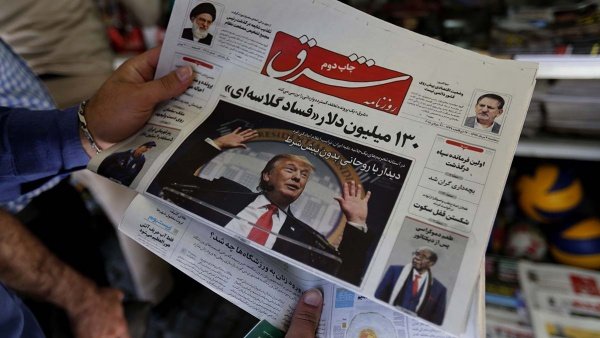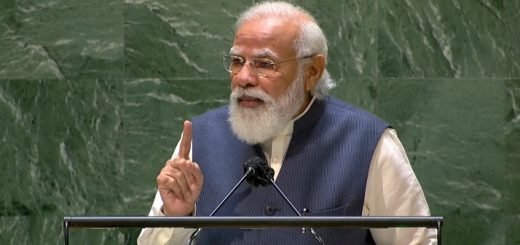Weighing the Options for India: Iranian Oil or American Sanctions?

The Iranian Foreign Minister Javad Zarif’s visit to New Delhi on May 14 for a meeting with Indian External Affairs Minister Sushma Swaraj marked a rare practice of hosting a foreign minister in the middle of the national elections. It represented the urgency with which Iran decided to mobilise international political support amidst rising tensions with the United States. His visit to New Delhi was preceded by visits to Beijing and Moscow. The visit came only days after India decided to abide by the American restrictions on importing Iranian oil, which came into effect from May 2. India’s previous position of opposing unilateral sanctions on Iran clearly seems to have undergone a significant change. While there were no obligations under international law to comply with American demands, the outgoing Indian government under Prime Minister Narendra Modi deemed it fit to take such an indicative measure and leave further consideration on the matter after the declaration of the results of the 17th Lok Sabha elections. With the established return of Narendra Modi to the Prime Minister’s office after the historic NDA win, it is necessary to explore the challenging position that India finds itself in: caught between the deteriorating relations of Iran and the United States of America and balancing its own geopolitical and economic interests while attempting to maintain cordial relations with both parties.
Economic sanctions have been the tool of the Trump administration in trying to attain compliance from other countries. The crippling economic sanctions on Iran had been removed in 2015 when the Obama administration, along with the other members of the Security Council, Germany and the European Union, managed to reach an agreement with Tehran to halt the Iranian nuclear programme and allow periodic IAEA inspections of all Iranian nuclear facilities to ensure compliance. Despite IAEA’s assurance that Iran continued to comply with the deal, the United States withdrew from the deal in 2018 and once again, imposed sanctions on Iran in an effort to push for a renegotiation of the deal. The renegotiation as per the American demand entails forcing Iran to stop its alleged support for militant groups in the region and halt its development of ballistic missiles. The American sanctions have targeted the oil sector heavily, in an effort to cut revenues that Iran receives from exports. Such a move is geared towards crippling the economy and coercing compliance, while also preventing Iran from pursuing the alleged activities. This move was heavily criticized by the international community, including the other parties to the JCPOA since the deal was forged with the intention to further peace and stability in the region.
India received a waiver from the United States to continue purchasing Iranian oil for six months in November 2018, and the end of the waiver in May indicates that India now finds itself in a challenging position. President Trump tweeted that “anyone doing business with Iran will not be doing business with the United States.” A failure to comply with the American demand would lead to sanctions on Indian state-owned and private entities. This clearly demonstrates the non-negotiable stand taken by the American administration but does little to explain the challenges that India must deal with now.
India is the third largest oil importer in the world, and Iran is the third largest oil supplier for India, after Iraq and Saudi Arabia. Not only was Iran one of the largest suppliers of oil for India, but the terms of trade were also extremely favourable – with 60-day credit, free insurance, free on board (FOB) basis and a barter-of-goods arrangement. The American demand to bring down oil imports to zero is undoubtedly going to hurt Indian interests as it will have to search for alternative suppliers of oil to meet the energy demands of the country. Considering the favourable terms of trade that were in place with Iran, such a move will be necessary to protect Indian interests but may have severe economic implications. The OPEC decision to make supply cuts in December last year to deal with a drop in oil prices and rising supplies, along with existing American sanctions on Venezuelan state-owned oil company PDVSA, makes it likely that India will increase import of oil from countries like Saudi Arabia, Kuwait and the United Arab Emirates in its search for alternatives.
While alternative strategies for securing energy need to be formulated by the new government with utmost urgency, the more pressing concern will be the new Indian government’s stand on importing oil from Iran. During Zarif’s visit to Delhi, Swaraj conveyed that India would take a decision on importing oil “after the elections” after weighing factors including “commercial consideration, energy security and economic interests.” Now that Narendra Modi is back in the office, a decision must be made, keeping in mind India’s geopolitical and strategic interests.

Aside from the immensely significant oil trade between India and Iran, both countries have a deep cultural and historical relationship and Indo-Iranian ties have expanded into several realms. During his visit to New Delhi last year, Iranian President Hassan Rouhani claimed that Iran and India were prepared for joint ventures in gas and petroleum and he sought Indian investment in these areas, along with investments in industry and mining. Ahead of his meeting with Swaraj, Zarif told news agencies that “India is one of our most important partners, economic, political and regional.” Among the several issues, the development of Chabahar Port on the Gulf of Oman for trade with Afghanistan and Central Asia is a foreign policy objective that India has actively pursued in order to bypass Pakistan which refused to provide access for trade through land routes. Close to $500 million has been committed by India for the development of the port and associated roads and rail lines and it is fortunate that this project will not be hit by the American sanctions placed on Iran.
In the absence of an inescapable obligation, some may find it surprising that India made such an indicative move prior to the formation of its new government. Iran has remained a key strategic ally for India and India’s commitment to follow only United Nations sanctions was enough to dodge earlier demands made by the United States to contribute to the effort of depriving Iran of its oil revenues. The Indian government clearly felt otherwise recently, especially after the designation of Jaish-e-Mohammad chief Masood Azhar as a global terrorist by the United Nations on May 1. Seen as a diplomatic victory for India, especially considering the recent security environment of South Asia, the designation of Azhar as a terrorist by the Security Council was blocked by China’s use of the veto power on four different occasions earlier, despite clear evidence to support the designation. India would have been unable to secure this victory without the help of the United States and one can see the Indian move of cutting down oil import from Iran to zero as a price that must be paid for America’s assistance in achieving a foreign policy objective that had eluded the country for so long.
The seemingly quid pro quid decision taken by the Modi administration prior to the elections in favour of the United States will definitely hurt the Indian economy. International crude prices have been on the rise and while the previous Indian government’s decision to comply with American demands may have been the reason that the rise was not reflected at a domestic level, the new government is left with very little diplomatic space to manoeuvre. The Indian government’s hope that Iran and the United States will resolve all issues “peacefully and through dialogue” seems increasingly unlikely with recent developments in the Gulf that include the American deployment of the USS Abraham Lincoln Carrier Strike Group and a bomber task force to the US Central Command region. Instability in the Gulf would contribute to great economic and political challenges for India and while sourcing oil from other countries is a definite possibility, the issue of rising prices cannot be avoided. It is in the best interest of the new Indian government to maintain the stability of the Gulf, for the sake of its domestic energy requirements and the millions of expatriates in West Asia.
The challenge awaiting the new Indian government, once again under the leadership of Narendra Modi, is to weigh its options and protect its interests from a challenging position. Despite America’s help, the Azhar designation was far from an individual American success story and simply reaffirmed the ability of the Security Council to discharge its duties. Whether or not that should entail a price that involves sacrificing the goodwill of a longstanding ally and reliable supplier of oil in the form of Iran is a decision that the new administration must make at the earliest.


















